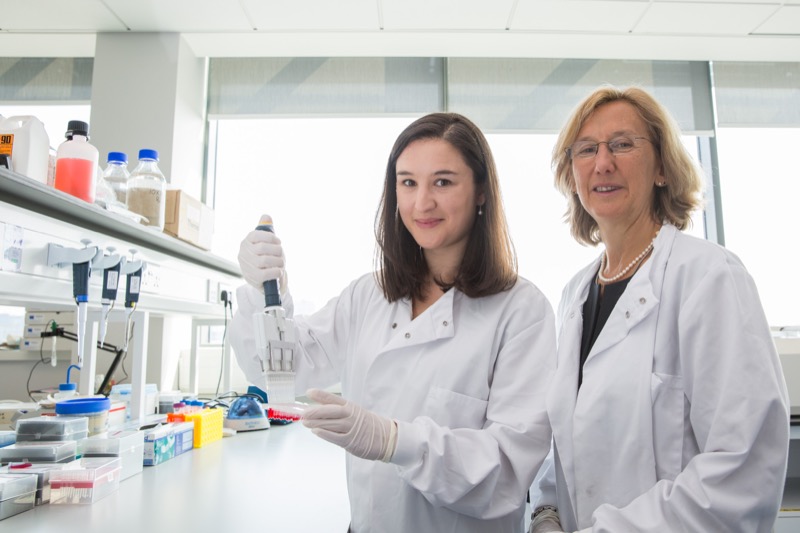Ice Bucket Challenge Pours Money into Trinity Research
Posted on: 22 September 2014
Did you take part in the Ice Bucket Challenge? If so, you were one of the 500,000 people across Ireland to deliberately drench yourself to raise funds for Motor Neurone Disease (MND) research.
Over €1.4 million has been raised to date, and 25% of the final figure will be given to Trinity’s internationally recognised MND research group led by Professor Orla Hardiman for clinical research into causes and treatments for MND.
MND affects about 300 Irish people, with some 110 new cases reported each year. This devastating disease causes inexorable decline of the motor neurones and death within three years of first symptoms in most people.
Professor Hardiman and her research group in TBSI have made several significant discoveries in the area, including the identification of a gene for MND. Her research, which is funded by the Health Research Board, has found that particular variations in genes make certain populations more susceptible to the disease than others.

Speaking about her research Professor Hardiman said, “We collaborate widely with colleagues across the world to understand the causes of this terrible disease, and to find new and effective treatments. People in Ireland have responded with incredible enthusiasm and generosity to the Ice Bucket Challenge and other fundraising initiatives. This has made our recently launched new fellowships and research bursaries in Trinity’s Unit of Academic Neurology a reality”.
“Our group has already made important contributions to drug development. We have been one of the key European centres for new clinical trials for MND, and we are also developing our own compounds that we hope to bring to patients in the next two years”.
“But in the meantime, it is important to provide the best type of care possible. We were the first group in the world to show that multidisciplinary clinics improve outcomes for people with MND, and the model of care that we provide is now replicated throughout the world. We strive continuously to improve care, and we are leading a large European consortium to study the patient journey, and to identify the best ways by which our care can be integrated with that provided by our colleagues in Palliative Care”.
A Register of MND established in 1994 has allowed the researchers to track the disease in Ireland over the past 20 years. The Irish MND Register is recognised worldwide as being the longest running and one of the most accurate of its kind in the world.
Trinity’s MND research has contributed to a better understanding of the different evolution pathways of the disease, including how approximately half of the people with MND in Ireland seem to be protected from developing thinking problems as a part of their symptom profile.
Speaking about the future, Professor Hardiman said: “We share the objective of the Irish MND Association, and that of colleagues across the world, to make a world that is free of MND. Given the talent and dedication of my own team, and our European friends and colleagues, I am very confident that we will succeed”.
The Irish MND Association which has been the beneficiary of the Ice Bucket Challenge for MND will have a consultation process with stakeholders, including the MND community, to discuss the most meaningful way to use the rest of the funds raised. For more information, please see http://imnda.ie/
Professor Hardiman recently delivered an inaugural lecture to mark her appointment as the first Professor of Neurology in Ireland.
